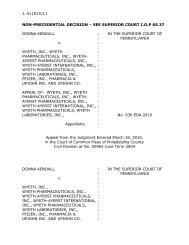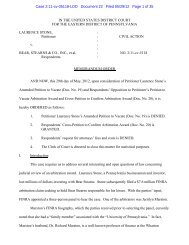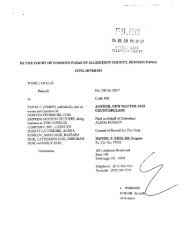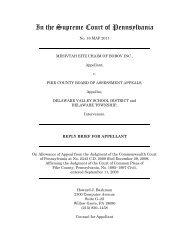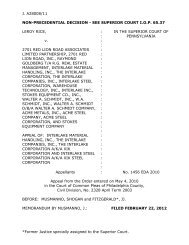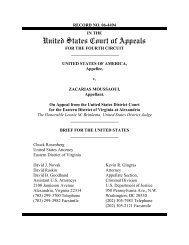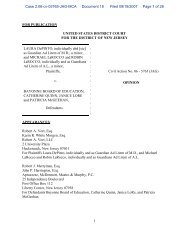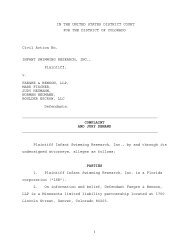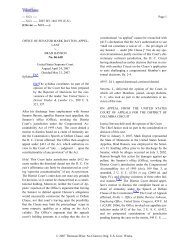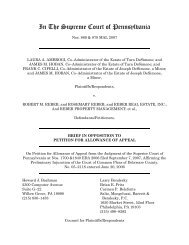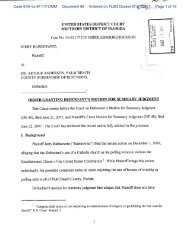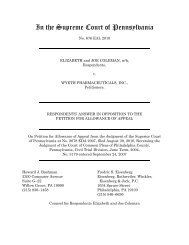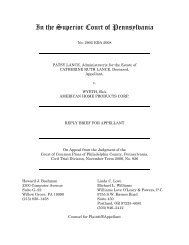petition for rehearing en banc - How Appealing
petition for rehearing en banc - How Appealing
petition for rehearing en banc - How Appealing
You also want an ePaper? Increase the reach of your titles
YUMPU automatically turns print PDFs into web optimized ePapers that Google loves.
prepared to accept the governm<strong>en</strong>t’s version of ev<strong>en</strong>ts ev<strong>en</strong> wh<strong>en</strong> giv<strong>en</strong> the option to convict<br />
on something (fiduciary non-disclosure) that is not a crime.<br />
Indeed, the precise testimony that the panel found credible and “disinterested” on Forum<br />
and Paxton also underlay the acquittals on counts 2 and 3. As to all Forum-Paxton transac-<br />
tions—counts 2, 3 and 7—the purchasers consist<strong>en</strong>tly testified that they never asked <strong>for</strong>, or<br />
desired, noncom<strong>petition</strong> agreem<strong>en</strong>ts from anyone. Tr. 2321, 2355, 2461. Had the jury found<br />
those witnesses as credible and “disinterested” as the panel did, it would have convicted on<br />
counts 2 and 3. The panel nonetheless deemed these two acquittals as not inconsist<strong>en</strong>t with<br />
the conviction on count 7 because “in those instances the fees w<strong>en</strong>t to Hollinger, and it is<br />
Hollinger”—“a far more plausible <strong>en</strong>trant into Forum-Paxton’s markets than the def<strong>en</strong>dants,<br />
as individuals were”—“that issued cov<strong>en</strong>ants not to compete.” Slip. op. at 13. But the issue<br />
is not whether the panel can hypothesize a theory that reconciles the acquittals with the guilty<br />
verdict. Since the whole point of Chapman is to ascertain whether the guilty verdict is<br />
tainted, the law cannot support an analysis that assumes the guilty verdict is untainted and<br />
th<strong>en</strong> makes everything else “fit.” Chapman is not a rational-basis test. For good measure,<br />
the panel’s hypothesis is doubly contrary to the record because: (1) the “Hollinger” in counts<br />
2 and 3 was Hollinger Inc., merely a Canadian holding company and not, as the opinion sug-<br />
gests, the U.S. publishing empire (Hollinger International), and (2) Black and his associates<br />
personally built that international publishing empire from the small Sherbrooke Daily Re-<br />
cord. Tr. 7476-77; 8178. Purchasers of Hollinger International’s newspaper assets there<strong>for</strong>e<br />
had every reason to fear com<strong>petition</strong> from the executive team that had successfully built a $2<br />
billion empire from a single small suburban newspaper.<br />
Ev<strong>en</strong> apart from the jury’s rejection both of the supposedly “disinterested” Forum/Paxton<br />
testimony and the theft theory underlying so many of the counts, the governm<strong>en</strong>t’s case <strong>for</strong><br />
theft on count 7 was weak beyond description. According to Radler’s contemporary docu-<br />
9



